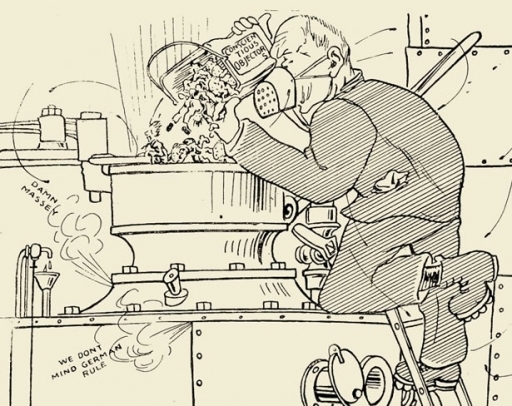Comprehensive lists of New Zealanders who opposed conscription in the Great War – compiled for the first time by New Zealand Government historians – are available online.
The new resources featured on the NZHistory website include lists of conscientious objectors, people convicted of sedition and those deprived of their civil rights for not serving.
They went online in August 2016 to mark the centenary of the Military Service Act which made men aged 20-45 liable for call-up to the New Zealand Expeditionary Force.
The 1916 legislation followed similar moves in Britain to tackle the Allies’ growing shortage of manpower after two years of fighting.
While most New Zealanders supported their country’s participation in the First World War, a small but significant group opposed it on religious, political, philosophical or personal grounds, the NZHistory team explains.
“This new research provides a rich resource for researchers studying the war itself, and also for family historians interested in their predecessors who resisted the war,” explains project leader Tim Shoebridge, Senior Historian at the Ministry for Culture and Heritage in Wellington.
“People will be able to gain new insights into the lives of their forebears as a result.
“The valuable work of Archives New Zealand in digitising all First World War military personnel files has assisted us with this project, which gives exciting new opportunities to know more about people we’ve not known much about previously.
“In addition to the lists, copies of key archival material have also been made available on the site, to help facilitate further research into the topic.”
The New Zealand government called up 138,000 men after conscription was introduced in late 1916. Until then, it had relied on volunteers for its forces fighting in support of the British Empire.
At least 32,445 appeals were heard. Provisional exemptions were granted to 11,343 men on grounds of essential employment or undue family hardship. Only 60 men were exempted on grounds of religious belief. Thirteen others rejected exemptions they were offered.
The call-up was accompanied by special wartime powers cracking down on dissent.
Visit NZHistory for more on conscientious objection & dissent in First World War New Zealand.
Also in Centenary News:
Britain passes 1916 law introducing conscription
Source: Manat Taonga – New Zealand Ministry for Culture and Heritage
Image: The Camp Smiler: Featherston (Featherston: M.E. Langmuir, 1918)
Posted by: CN Editorial Team
